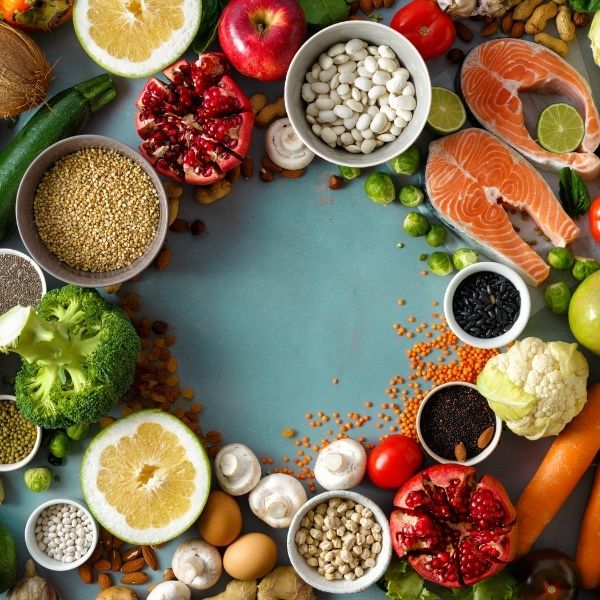Restricting calories, specific foods, and entire food groups is not an uncommon practice in the modern wellness space. There can be legitimate reasons for these practices in specific cases, but unfortunately, they are more often promoted to a broad audience. That is diet culture, plain and simple.
When I work with patients on their nutrition, I frequently hear those that were told in the past to just consume less, or completely remove a food group to clear up the health issues they were facing. Besides these recommendations making the patient feel like they are not fully being heard, they can negatively impact their relationship with food, create a cycle of disordered eating, and not necessarily get to the root of their issues.
It is commonly known as the restrict/binge cycle; we cut out a “bad” food and possibly temporarily feel better, then feel deprived and are overwhelmed by cravings. Binge eating, along with guilt and shame, are often what follow; then we feel this need to start over, reset, or be better. The blame is in the wrong place. It does not fall upon you, rather the industry, culture, or system in place. What we need is sustainability.
Although there are many different ways we can positively impact change on our health, I choose to focus on addition over restriction. We place our emphasis on what we can add to our meals, routines, and experiences to slowly and sustainably reach our goals. It seems so simple, but can be difficult to execute, especially when our relationships with food and health have been impacted and bombarded by restriction.
So, some first steps.
Reflect on the diets, programs, detoxes, fixes, etc. that you have tried in the past or may currently be trying. Look inward and ask yourself how you felt throughout them, why you left it, what brought you back to certain ones, and if you feel you have found answers from them.
Let go of morality associated with food. There is no such thing as a “good” or a “bad” food. I know this one is not easy. It will not happen overnight. Something that has helped me and my patients is to try to limit or avoid talking about food as “good”, “bad”, “healthy”, “unhealthy”, etc. Just being mindful of our language and thoughts around food will really give us an idea of what we have been conditioned to believe.
Care about your body. Care about it in the way that you will feed it when it is feeling hungry, rest when you are feeling tired. Learn how your body feels when it is hungry. Learn how your body feels when you have skipped a meal.
Try some new whole foods when you next go to the grocery store. Diversity in our diet is one of the largest indicators of a functioning microbiome, which carries over into all other areas of our health. Feed those gut bugs something new!
Add some fat and fiber into your breakfasts. It truly is the most important meal of the day, and can affect our blood sugar regulation for the rest of the day. Don’t skimp or restrict here. If you already have something like a smoothie, or cereal, or yogurt, or oatmeal, or toast, sprinkle a tablespoon of hemp and chia seeds in there. We don’t need to get picky about whether our breakfast choices are “good” or “bad”, but we can slowly add some nutrient density to what we already have to make sure we are eating enough and feeding our body what it needs.
And finally, get some support. This is not easy and cannot happen immediately. Patience has often been lost after being told so many times that we can fix all of our problems in 30 days or so. Sustainability is king here. Why would we want to eat in a way that we can’t keep up with, or be happy with for the rest of our lives?
If you’d like to look further into your relationship with food, I would love to help! Just schedule a free 20 minute consultation with me HERE!





